35W 5.8GHz Microwave Radar Induction Sensor Switch for On Off lighting control AM-RS-04F/AM-G5835
New Launched, Patented Housing.
Compact size Motion sensor switch suitable to fix within most luminaires.
35W 5.8GHz Microwave Radar Induction Sensor Switch for On Off lighting control AM-RS-04F/AM-G5835
A microwave motion sensor switch for lighting control is a device that uses microwave technology to detect motion and control the operation of lighting systems. It combines the functionality of a microwave sensor with a switch, allowing it to automatically turn lights on or off based on the presence or absence of motion within its detection range.
When installed in an area, such as a room or hallway, the microwave motion sensor switch emits microwaves and detects the reflected waves. If there is no movement detected within its range, it assumes the space is unoccupied and switches off the connected lights to conserve energy. However, when motion is detected, indicating the presence of a person or object, the sensor triggers the lighting system to turn on.
Microwave motion sensor switches are commonly used in various settings, including residential, commercial, and industrial environments. They offer several advantages over other types of motion sensors, such as passive infrared (PIR) sensors.
Inefficient manual switch operation: Traditional switches require physical contact to turn on or off, causing inconvenience and time wastage.
Limited applicability: Traditional switches may not work effectively in certain environments, such as dark or crowded areas, where visibility or accessibility is a challenge.
Energy wastage: Leaving lights or appliances on due to forgetfulness or negligence leads to unnecessary energy consumption and increased utility bills.
Touchless operation: The radar induction switch eliminates the need for physical contact, allowing users to control lights or appliances effortlessly with a simple hand gesture or movement.
Enhanced convenience: The switch detects human presence and automatically turns on/off lights or appliances, providing a hands-free and hassle-free experience.
Versatility: The radar induction switch works effectively in various environments, including dark, crowded, or hard-to-reach areas, ensuring reliable and convenient operation wherever it is installed.
Energy efficiency: By automatically turning off lights or appliances when not in use, the radar induction switch helps conserve energy, reduce utility bills, and contribute to environmental sustainability.
Safety and longevity: With its non-contact operation, the switch minimizes wear and tear, extending the lifespan of both the switch and the connected lights or appliances.
Modern and stylish design: The radar induction switch features a sleek and contemporary design, seamlessly integrating with any interior décor and enhancing the overall aesthetics of the space.
| Item name | Microwave motion sensor lighting switch |
| Model no | AM-RS-G5835 |
| Operation voltage | 85-265Vac, 50/60Hz |
| Rated Load | 5-35W |
| HF system | 5.8GHz |
| Transmitting power | <0.5mW |
| Control device type | On/Off switch |
| Detection range | 6-8m |
| Detection angle | 140 degree |
| Hold time | 15-20s (default) |
| Ambient light level | 10-15lux |
| IP rating | IP20 |
| Load power | 5-35W |
| Load quantity | 1-3pcs |
| Load type | LED Lamps, Fluorescent lamps, traditional lamps etc |
| Size | 40*28*23mm |
| Application type | Corridor, staircase, lobby, balcony, hallway, |
| MOQ | 100pcs |
| Package details | 100pcs/box, 33*18*16cm, 2kgs/box 500pcs/box, 40*35*22cm, 5kgs/box |
| Lead time | 1000pcs: 7 days 10000pcs: 15-20 days (depending on required specification) |
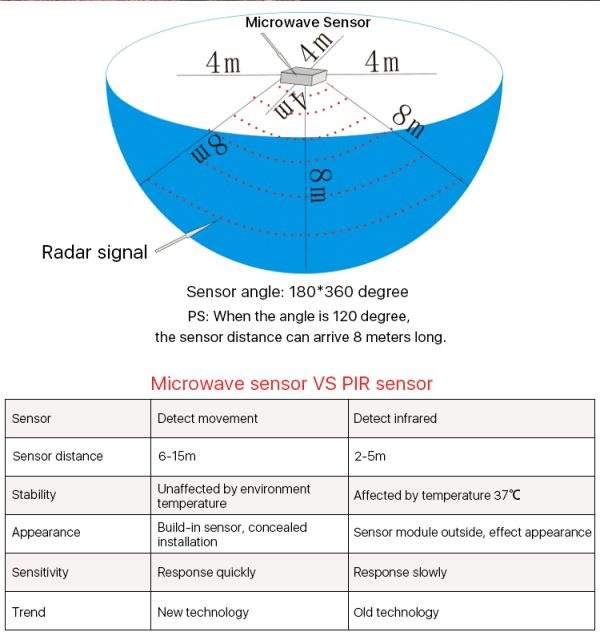
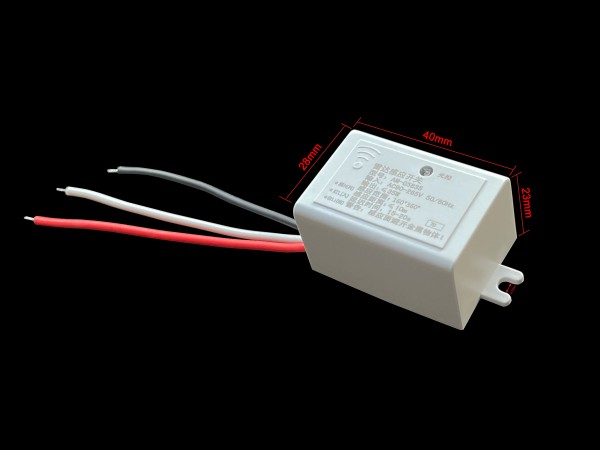
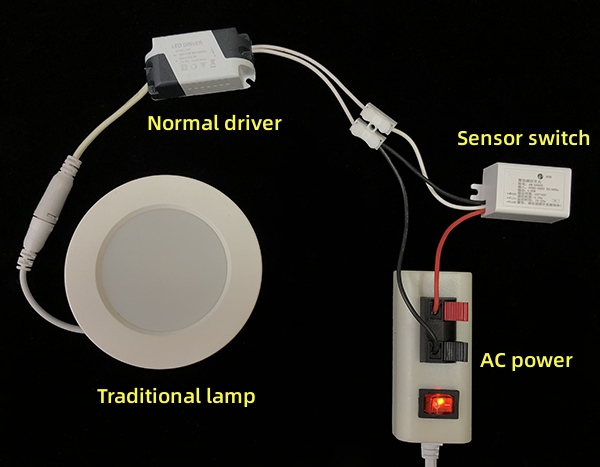
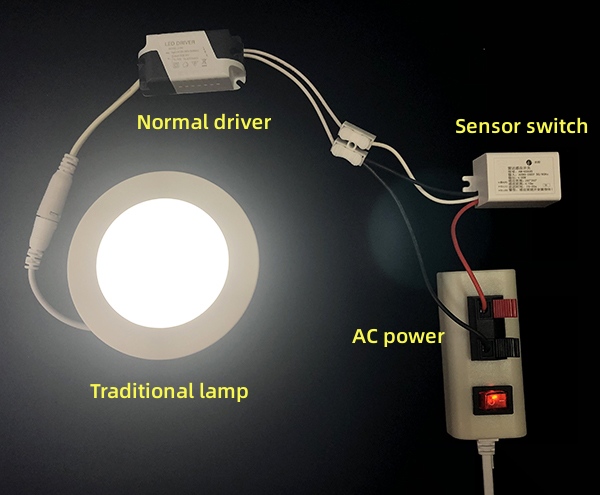
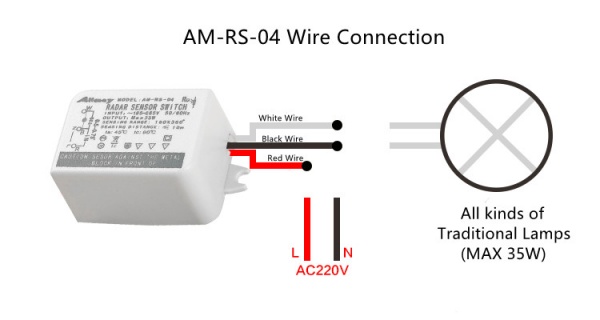



Here are some frequently asked questions (FAQ) regarding microwave motion sensor switches:
Q1: How does a microwave motion sensor switch work? A: A microwave motion sensor switch emits microwaves and detects the reflected waves. When motion is detected within its range, it triggers the connected lighting system to turn on. If no movement is detected for a certain period, it switches off the lights to conserve energy.
Q2: What is the detection range of a microwave motion sensor switch? A: The detection range can vary depending on the specific model and application. It is typically specified by the manufacturer and can range from a few meters to tens of meters.
Q3: Can microwave motion sensor switches detect motion through walls or obstacles? A: Yes, microwave waves can penetrate walls and objects, allowing the sensor to detect motion even when the object is not directly in its line of sight. This is one of the advantages of microwave sensors over other types of motion sensors.
Q4: Are microwave motion sensor switches sensitive to interference from other devices? A: Microwave sensors can be affected by interference from other electronic devices that emit microwaves, such as Wi-Fi routers or microwave ovens. However, manufacturers often employ techniques to minimize false triggering caused by such interference.
Q5: Can the sensitivity of a microwave motion sensor switch be adjusted? A: This model is not available, we have other types with dip switch, sensitivity, delay time, lux level can be adjusted.
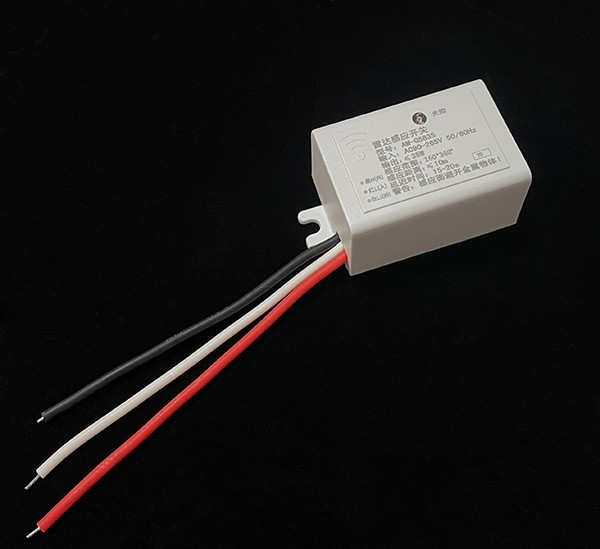
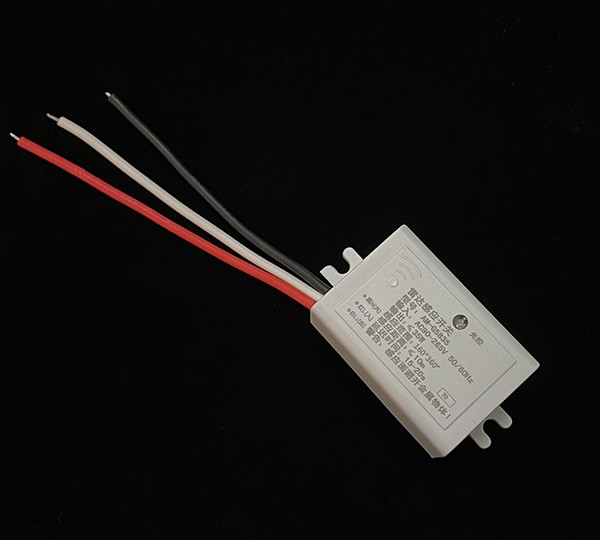
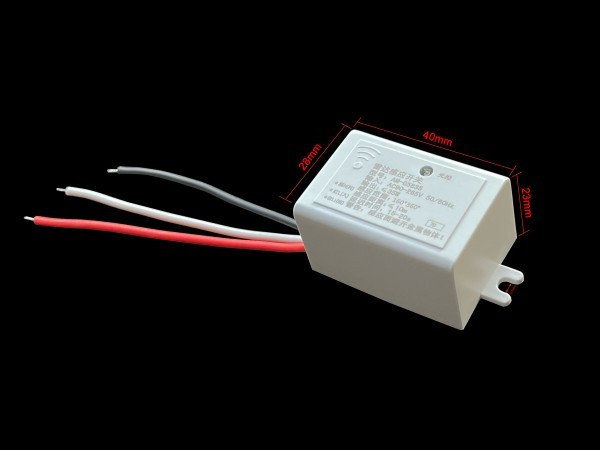
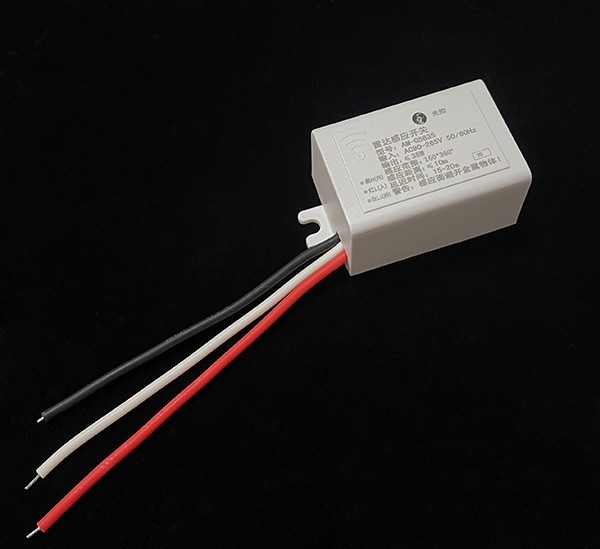
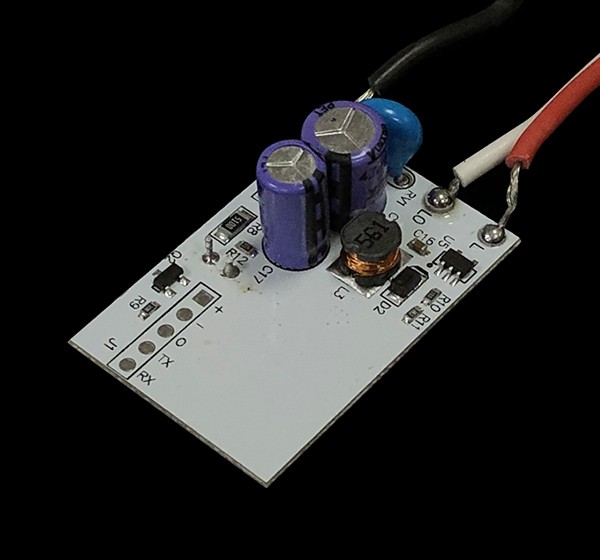
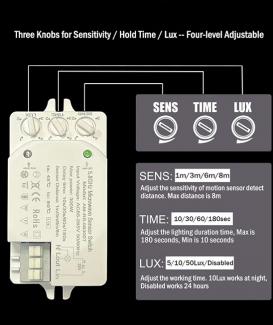
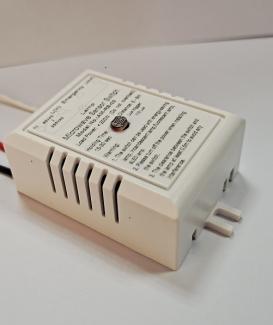
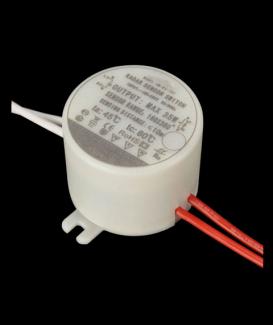
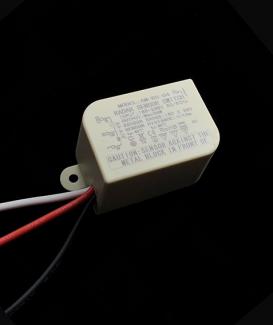
 Selina-Allmay Motion Sensor Light Specialist
Selina-Allmay Motion Sensor Light Specialist